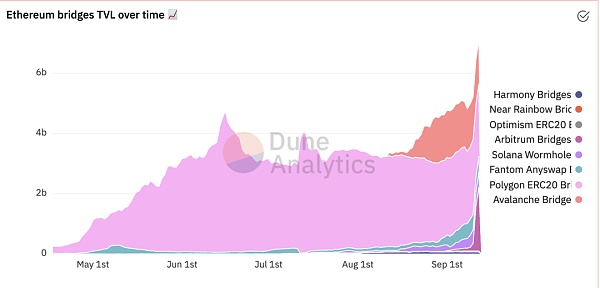中國很多互聯網平台發行的NFT產品主要是基於聯盟鏈發行
Q1:How do NFTs differ to cryptocurrencies?
NFT和加密貨幣有什麼區別?
A:Simply speaking, NFTs is a non-fungible token, while FT is a fungible token. Technically, they are both cryptocurrencies. However, NFTs can be associated with specific metadata and become various digital products or digital commodities, while FT is mostly used as currency or securities.
簡單地說,NFT是一種非同質化令牌/代幣,而FT是一種同質化令牌/代幣。從技術上說,他們都是加密貨幣。但是NFT能與特定的元數據相結合而成為多樣性的數字產品或者說數字商品,但FT很多時候被當成貨幣或證券使用。
Q2:To what extent is keeping financialization away from NFTs the key to the long-term success of NFTs in China?
在多大程度上說,讓NFT遠離金融化是NFT在中國獲得長期成功的關鍵?
A:In this regard, China’s regulatory policy is consistent with the logic of other countries or regions in the world, that is, if the issuance and trade of NFT meets the characteristics of financial instruments such as securities, fund shares and securitization products, it must be regulated in accordance with the requirements of financial regulation.
關於這方面,中國的監管政策內在邏輯與世界上其他國家和地區是一致的。那就是,如果NFT的發行和交易符合金融工具的特徵比如證券、基金份額或其他證券化產品,那麼就必須符合金融監管的規定。
Q3:What are the legal issues that need to be understood in the development of NFTs in China?
中國發展NFT業務需要了解哪些法律問題?
A:Generally speaking, it includes these aspects:
I. The legal issues of information and data related to data processing, network security and personal information protection;
II. The legal issues related to intellectual property rights such as copyright, trademark, patent and trade secret, as well as other civil rights such as portrait right and virtual property right;
III.Fund-raising, deposit collecting Financial transactions and other related legal issues of financial supervision.
通常來說,主要包括這些方面,
一是有關數據和信息處理、網絡安全和個人信息保護等方面的法律問題;
二是有關知識產權比如版權、商標、專利、商業秘密,以及其他一些民事權利包括肖像權、虛擬財產等方面的法律問題;
三是融資、吸收存款以及其他與金融監管方面的法律問題。
Q4:What are the key issues in NFT platform compliance in China?
中國的NFT平台合規方面的主要問題是什麼?
A:As a platform compliance, the three issues mentioned above are very important. If these issues are not handled well, they may lead to civil, administrative and even criminal liabilities. Relatively speaking, compliance with financial regulatory requirements may be slightly more important.
作為一個合規平台,剛剛提到的三個法律問題都是非常重要的。如果這些問題不能很好地處理,可能會導致民事、行政和刑事法律責任。相對來說,金融監管方面的合規稍微更重要一些。
Q5:To what extent is the Chinese government involved in NFTs?
中國的政府機構在多大程度上關注NFT?
A:From personal observation, the potential of NFT products in stimulating market in cultural and creative works such as digital works of art, cultural and Expo resources has attracted the attention of relevant government agencies.
從我的個人觀察來看,NFT產品在文創產品如數字藝術品、文創和博物館資源方面的市場潛力確實吸引了一些與政府有關的機構的注意力。
Q6:What are the advantages and disadvantages of the China system with regards to creating an NFT market?
在創建NFT市場方面,中國市場的主要優勢和劣勢是什麼?
A:There are many advantages, including China’s rich cultural and creative resources and application scenarios, a relatively broad market, and a relatively sound market system composed of manufacturing, software, creative services and other related industries;
The disadvantage is that at present, too much attention is paid to games and entertainment, and the combination with physical application scenarios is far from enough;
The application mode is still relatively single. At present, many pictures are only used to simply determine the ownership;
There is indeed excessive anticipation in the specific issuance process.
In addition, we need to further improve the benign interaction between the regulatory mechanism and the market demand.
有很多優勢,包括中國豐富的文創資源和應用場景,相對廣闊的市場和包括製造業、軟件業、創意服務業以及其他相關產業在內的相對健全的市場體系。
目前來說不足之處是,我們在遊戲和娛樂產業方面投入了太多的注意力,而與其他實體產業場景結合關注度不夠;
應用模式仍然相對單一,目前,很多的圖片只能用於表明所有者;
在具體發行過程中確實存在過分投機炒作的情況。另外,市場需求與監管規範之間的良性互動機制需要進一步完善。
Q7:To what extent do NFTs/digital collectibles differ in China, compared to the rest of the world?
中國的NFT產品/數字藏品與境外的NFT有什麼區別?
A:At present, the main difference is that the NFT products issued by many Internet platforms in China are mainly issued based on alliance chain or so called non-public chain, while many overseas are issued based on public chain and traded through smart contracts, but the NFT technical protocols on which they are based are basically similar.
I personally believe that NFT is a technical tool for commodity digitization. From the legal nature, NFT is a digital product and commodity with use value.
If we understand the application and supervision of NFT products from this perspective, it is possible to get through the application modes at home and abroad.
目前主要區別是,中國很多互聯網平台發行的NFT產品主要是基於聯盟鏈發行,而境外很多是基於公鏈發行且通過智能合約進行交易,但是其所依據的NFT技術協議基本上是類似的。
我個人認為,NFT是商品數字化的技術工具,從法律性質上說NFT是一種數字產品和具有使用價值的商品,從這個角度去理解NFT產品應用和監管,境內外是有可能打通的。
Q8:What are the future prospects for NFTs? Both in China and around the world?
NFT的前景如何,包括在中國和在全世界?
A:Whether in China or outside, the development of digital economy has become an inevitable trend. Like many other countries in the world, China is committed to promoting the digital transformation of economy and society.
NFT is a technical tool for commodity digitization, a technical tool for digital content production and cooperation in the future, and a technical carrier for forming a healthy data equity system and allowing data to be owned by users. It has broad prospects in the future.
不管是在中國還是全球,數字經濟的發展已經是必然趨勢,中國和世界上很多其他國家一樣在致力於推動經濟和社會的數字化轉型。 NFT是商品數字化的技術工具,是未來進行數字內容生產協作的技術工具,是形成健康的數據權益體系讓數據歸用戶所有的技術載體,在未來具有廣泛的前景。
Q9:To what extent is there a risk of an “NFT bubble”?
存在多大程度上的NFT泡沫?
A:The general emerging application mode will produce bubble. As far as NFT is concerned, the main reason for the emergence of bubbles is that they do have broad prospects and attract large amounts of capital and investment.
On the other hand, their technical protocols, application models, application scenarios and industrial ecology are not perfect enough.
一般新興應用模式都會產生一定程度的泡沫。就NFT而言,產生泡沫的主要原因是一方面確實擁有廣泛的前景,吸引大量的資金和投入,另一方面其技術協議、應用模式、應用場景、產業生態都還不夠完善。
Q10:How do you see the China NFT market developing over the next five-to-10 years?
您如何看待五到十年後的中國NFT市場?
A:It’s usually hard to predict. The development of NFT market is closely related to the digitization process of the whole society.
From a personal point of view, NFT products will gradually replace traditional digital products in some fields in five years, and most fields may be replaced in ten years.
一般新興應用模式都會產生一定程度的泡沫。就NFT而言,產生泡沫的主要原因是一方面確實擁有廣泛的前景,吸引大量的資金和投入,另一方面其技術協議、應用模式、應用場景、產業生態都還不夠完善。
Q10:How do you see the China NFT market developing over the next five-to-10 years?
您如何看待五到十年後的中國NFT市場?
A:It’s usually hard to predict. The development of NFT market is closely related to the digitization process of the whole society.
From a personal point of view, NFT products will gradually replace traditional digital products in some fields in five years, and most fields may be replaced in ten years.
一般做預測都很難。 NFT市場的發展與整個社會數字化進程緊密相關。就個人觀點而言,五年後NFT產品將在一些領域逐漸取代傳統數字產品,十年後可能會基本完成所有取代。
Q11:Are there any other key legal questions or issues around NFTs that people should be aware of?
有沒有其他人們必須意識到的與NFT有關的關鍵性法律問題?
A:We should realize that digitization is irreversible. In the future, we will slowly accept that NFT is a daily commodity in Metaverse, but it is still far from reality currently. There is still a long way to go in technology, application and industry, including legal norms.
Whether as users or entrepreneurs, we should participate carefully on the basis of full learning.
我們要意識到,數字化已經不可逆轉,未來我們會慢慢接受NFT是元宇宙中的日常用品,但是現在還離現實很遠,技術、應用、產業包括法律規範都還有很長距離,不管是作為用戶或企業家要在充分學習的基礎上謹慎參與。
展開全文打開碳鏈價值APP 查看更多精彩資訊


